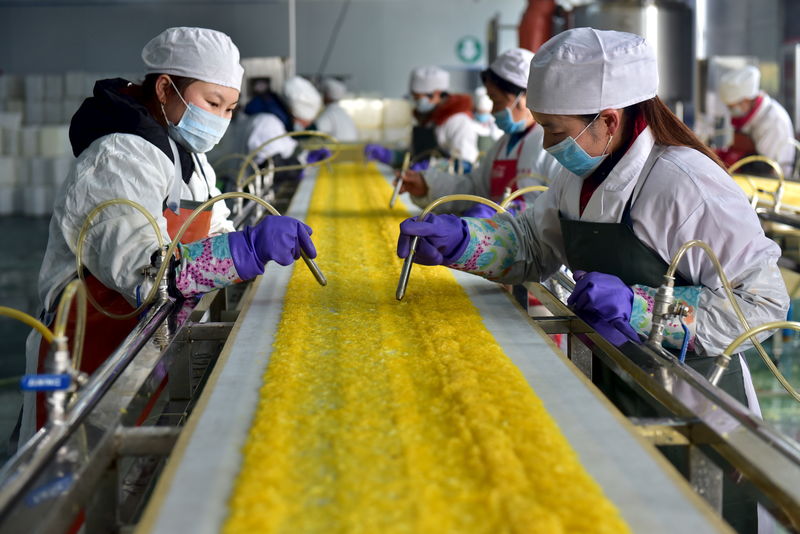Investing.com-- Chinese factory activity unexpectedly grew in August, a private survey showed on Friday, as manufacturers benefited from an uptick in new orders on improving local demand.
The Caixin manufacturing purchasing managers’ index (PMI) read 51.0 for August, much higher than expectations for a reading of 49.3, as well as last month’s reading of 49.2. A reading above 50 indicates expansion, with the Caixin PMI reaching its highest level since February.
Improving local demand, amid continued monetary stimulus measures by the Chinese government, helped offset a slowdown in overseas demand, which dented export-oriented businesses.
New order intakes rose, while client spending also increased through the month on improving local demand. This also boosted employment and price pressures in the sector, Caixin Insight Group said in a statement.
Still, Caixin analysts noted that the Chinese economy still remained under pressure, particularly given that worsening conditions in the country’s biggest export markets presented a bleak outlook for demand.
“Seasonal impacts will gradually subside, but the problem of insufficient internal demand and weak expectations may form a vicious cycle for a longer period of time. Combined with the uncertainty in external demand, the downward pressure on the economy may continue to increase,” Wang Zhe, Senior Economist at Caixin Insight Group wrote in a note.
The Caixin data contrasts an official PMI reading from Thursday, which showed that China’s manufacturing sector shrank for a fifth straight month in August, albeit at a slower-than-expected pace.
But the Caixin survey also differs from the official reading, in that it focuses more on smaller, private enterprises, as opposed to the bigger, state-run enterprises surveyed by the official survey.
Friday’s reading shows that China’s private sector is benefiting from recent stimulus measures undertaken by Beijing, which include looser lending conditions and steady liquidity injections by the People’s Bank of China.
But the Chinese economy is still expected to face sustained headwinds in the coming months, especially if a real estate crisis intensifies and if demand in its biggest markets dries up further.
